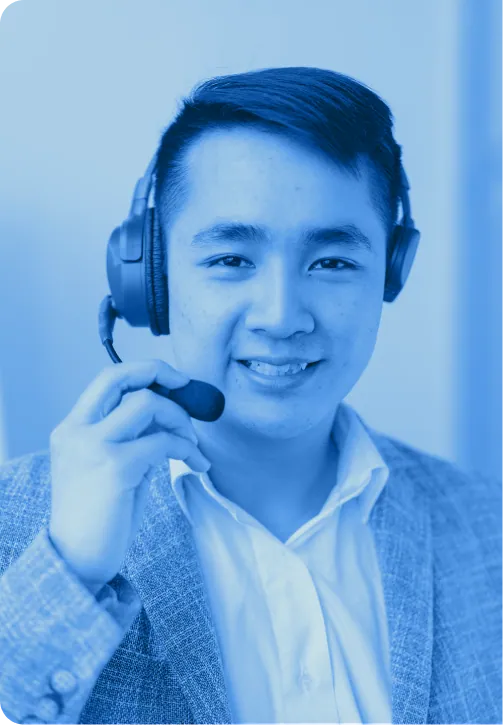
Overview
An Agile coach is responsible for enhancing client awareness of practice and behaviors, helping them realize the objectives which may otherwise be outside their reach. A coach enhances team practices to enable focus on business goals and objectives of the team as well as the organization. A coach’s responsibilities also include teaching, mentoring, problem solving, planning, leadership, team building and much more. This course designed to help participants understand and practice the core coaching competencies of an Agile coach, enabling them to succeed in their roles.
What You'll Learn
- Understand the definition of Agile, and the set of competencies and practices associated with being a coach
- How to develop ethical and professional coaching standards and agreements, and how to apply them in coaching engagements with teams and organizations
- Understand the various roles, skillsets and disciplines of an Agile coach – coaching, facilitating mentoring, teaching and how to develop a ‘style’, moving in and out of these roles while remaining flexible, open and confident
- Understand the philosophy behind servant leadership, practices and techniques to be a true servant leader – putting the needs of others first to facilitate the development of high performance teams
- Explore the Agile Coach thinking – the mindset shift necessary to help you, and others, focus on team improvement, value-driven delivery and leveraging constraints while living in the present moment, staying curious, innovative and having fun
- Learn ways to establish mutual trust enabling participants to create a safe, supportive environment in which the team can excel
- Learn active listening and powerful questioning techniques utilized to leverage the ability to focus on what is being said and maximizing communication & collaboration through seeking and receiving information
- Learn advanced techniques in planning and goal setting in order to help the team/organization achieve their goals and agreed-upon coaching results
- Learn techniques for creating awareness and designing in actions and learning that would be helpful for managing progress and accountability within the team
- Understand the usage of the Agile coaching competencies and practices framework – a framework for understanding and incorporating purpose, proficiency and practices into coaching engagements
Curriculum
- “Your” definition of Agile coaching
- The Agile coaching mindset
- Defining Agile team facilitation
- Agile team facilitator behavior
- Assessing one’s ability to serve the team
- Responsibilities and skills of the coach
- Achieving self-awareness/self-management in the coach
- Developing more advanced Agile coaching skills
- Setting boundaries for coaching
- Internal vs. External coaches
- Defining the coaching ‘contract’
- Designing a coaching alliance
- Facilitation and the Facilitator stance
- Definition of Facilitation
- The facilitation of meetings
- Designing meetings for collaboration
- Facilitating full participation and engagement
- Facilitating collaboration
- Facilitating team decision making
- The coaching stance
- Maintaining neutrality in coaching
- Self-awareness and self-management
- Holding the client’s agenda
- Issue identification and exploration
- Action commitment and achievement
- Professional coaching skills
- Mentoring and coaching the Agile roles
- Mentoring and coaching transitions and practices
- Understanding the individual change cycle
- Identifying and handling resistance from individuals
- Mentoring vs. coaching
- Mentoring and coaching versus teaching
- Teaching the Agile basics and mindset shift
- Modes and methods of teaching
- Distinguishing and articulating Agile frameworks
- Understanding team development
- Understanding a model of team development
- Detecting a team’s stage of development
- Helping a team move up the development curve
- Setting up a team environment
- Creating team trust
- Learning shared leadership and self-organization
- Continuously seeking to improve
- Defining and identifying high performance
- Knowing and establishing team vs. group mindset/behaviors
- Understanding the strategies for dealing with different types of teams
- Understanding your role in the self-organizing team
- Handling conflict and dysfunction within the team
- Identifying and managing ‘Group Think’
- Handling organizational impediments
- Promoting leadership engagement


Who should attend
- Project and program professionals who aspire to take on the role of an Agile coach
- Experienced Scrum Masters, Agile project/program managers or Iteration managers who want a more comprehensive understanding of the complete range of business and Agile coaching skills
- Agile coaches who want to enhance and improve their professional skills as Agilists and professional coaches
- Coaches who wish to increase the ability to breakthrough seemingly insurmountable problems with their teams
- Agile managers, Product Owners and others wishing to access a broader range of skills in working with teams
- Skilled coaches who wish to polish their skills and learn a few new tricks and techniques
- Functional managers or Scrum Masters with some experience as an Agile coach, but Agile seems like it is not working for your teams
- Someone trying to become a Certified Scrum Coach or ICAgile Certified Expert in Agile Coaching
- Someone coaching or mentoring Agile teams, but you seem to be caught in a rut or just going through the motions and not making progress





